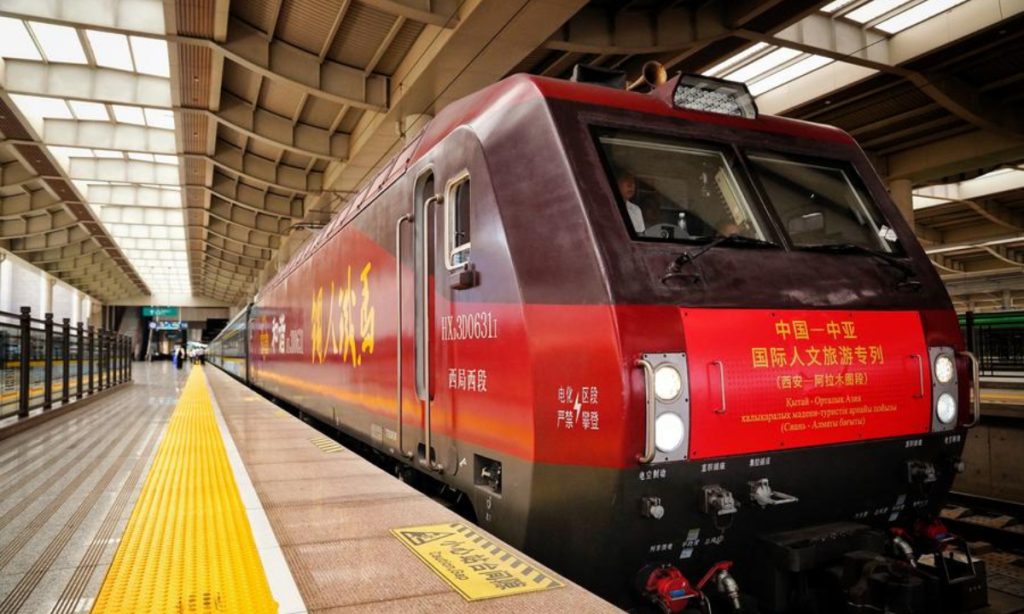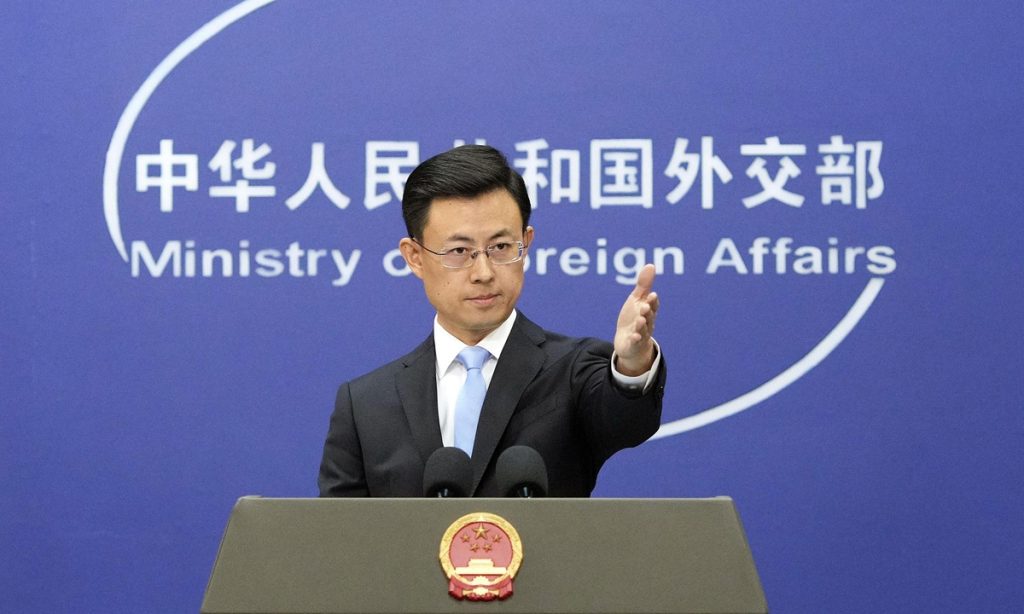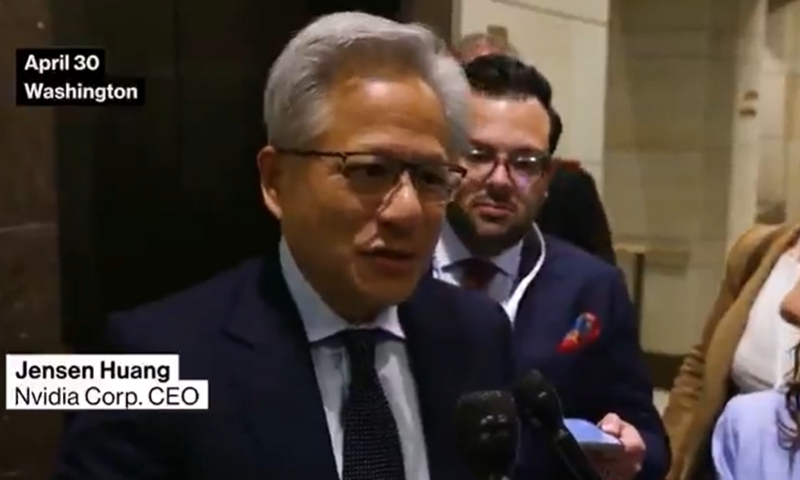China, Central Asia embrace new cooperation opportunities

The rhythmic clatter of wheels on rail tracks echoed the fading tinkle of camel bells, heralding a renaissance of the ancient and timeless Silk Road, invigorated by blossoming cooperation between China and Central Asian countries.
With the second China-Central Asia Summit having concluded in Astana, Kazakhstan earlier this week, both sides are seizing fresh opportunities for trade and economic cooperation, vowing to uphold multilateralism, consolidate the multilateral trading system, and deepen cooperation in key areas such as agriculture and energy.
Since the inaugural summit held two years ago in Xi'an, a historic city in northwest China, cooperation between China and Central Asia has drawn these land-linked economies closer to each other, yielding mutually beneficial outcomes across various sectors.
ENHANCED CONNECTIVITY
Xi'an, once a bustling gateway to the Silk Road, is witnessing the revival of this ancient trade route, with a recently launched international tourist train service making exchanges between China and Kazakhstan easier.
As a hallmark achievement of the 2023 summit, this 3,000-kilometer journey connects Xi'an in Shaanxi Province with Almaty, the largest city in Kazakhstan. Traversing snow-capped mountains and vast grasslands, what makes this train route truly special is the opportunities it provides for cultural and artistic exchanges between the two countries. Such cultural interactions can, notably, also translate into valuable business opportunities.
During the train's maiden journey in 2025, Yuan Li, head of a Xi'an-based home furnishings company, immersed herself in Central Asian culture. She drew design inspiration from Kazakh embroidery to enrich her business options, saying that her company would invite artisans from both China and Kazakhstan to co-design a Silk Road-themed home collection.
This train route is one of many vivid examples of enhanced regional connectivity between China and Central Asian countries. In December 2024, the commencement ceremony of the China-Kyrgyzstan-Uzbekistan railway project was held in Jalalabad, Kyrgyzstan. The railway is a flagship project of the Belt and Road Initiative, serving as a strategic link between China and Central Asia.
Once completed, the railway will become a strategic corridor benefiting all the three countries and their peoples, contributing to regional economic and social development and playing a significant role in promoting infrastructure connectivity, economic and trade exchanges, and high-quality development of the Belt and Road.
On a broader scale, cooperation between China and Central Asia is bringing Asia and Europe closer together and at a faster pace, thanks to the China-Europe freight train service. This train service passes through cities like Almaty and Tashkent, transforming them into bustling transit hubs. It now reaches 229 cities in 26 European countries and over 100 cities in 11 Asian countries.
Central Asia serves as a hub connecting China with the Eurasian continent, and cooperation between China and Central Asian countries has promoted connectivity in infrastructure, energy and trade, said Xu Xiaotian, a researcher with Heilongjiang University in northeast China. "Through economic integration, security collaboration and cultural exchanges, China and Central Asian nations are establishing a tighter network of cooperation," Xu said.
"China's cooperation with Central Asian countries contributes to mutual development and strengthens ties in science, education, culture and socio-economic fields, which are crucial for the stability, development, well-being and prosperity of the entire region," said Rashid Yusupov, director of the Center for Belt and Road Studies of Kyrgyz State University.
SHARED PROSPERITY
In March, a shipment of 16,000 apple seedlings from the city of Weinan, Shaanxi Province, entered Tajikistan through the Karasu Port in northwest China's Xinjiang. This marked the province's first-ever export of apple saplings to Tajikistan. Historically, Central Asia is one of the regions from which apples migrated to China.
According to Liu Zhanyuan, an official with Xi'an customs, these saplings will be planted in an apple orchard commemorating the friendship between China and Tajikistan. The orchard is a project to implement the outcomes of the 2023 China-Central Asia Summit.
"By sharing advanced apple cultivation techniques and management expertise with Tajikistan, the project will help local farmers improve apple yields and quality," Liu added.
The apple orchard project exemplifies the deepening ties between China and Central Asia, where cooperation across various sectors is translating into tangible economic benefits.
According to China's General Administration of Customs, China-Central Asia trade reached 94.8 billion U.S. dollars in 2024, marking an increase of 5.4 billion year on year. In the first four months of this year, bilateral trade hit 173.05 billion yuan (about 24.13 billion U.S. dollars), a 37.3-percent surge compared to the same period last year.
China and Central Asian countries have not only seen a significant increase in trade value but also expanded their economic cooperation into various sectors -- creating a comprehensive and multifaceted mutually beneficial economic relationship, Xu said.
Looking ahead to future cooperation between China and Central Asia, Li Ziguo, an expert with the China Institute of International Studies, said that driven by a new wave of technological revolution, digital economy and e-commerce are emerging as new growth areas for bilateral economic and trade cooperation.
Moving forward, a series of big data cooperation projects will provide a more efficient and stable network environment for information exchange and resource sharing between China and Central Asian countries, thereby further unlocking digital dividends in areas such as artificial intelligence, the Internet of Things and e-commerce, Li added.

